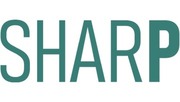Project Areas & Projects

The overarching goal of the Collaborative Research Centre SHARP (TRR419) is to contribute to theory-building on AI-supported personalisation of simulation-based learning in higher education. As a joint research context, SHARP focuses on diagnosing and intervening as two highly relevant professional practices in many academic professions. Researchers from psychology, educational science, and subject-matter teaching and learning in medicine, biology, chemistry, computer science, mathematics and physics will engage in research based on a joint conceptual framework and a set of overarching research questions.
The framework focuses on learning prerequisites, learning processes, as well as learners’ knowledge and skills, and the effects of personalised scaffolding and feedback in simulations. Simulations entail representations of practice intended to approximate specific professional practices. The framework differentiates three levels of personalisation: learning prerequisites (macro), multiple problem-solving tasks (meso), and continuously measured processes and activities (micro).
Main research questions are:
- What are the effects of personalised design features of simulations on learning processes, as well as diagnostic and intervention skills?
- To what extent and how can learning prerequisites, as well as diagnostic and intervention-related activities, be used as a basis for personalisation in simulation-based learning?
- To what extent can the effects be replicated and generalised?
Eighteen primary research projects will empirically test specific hypotheses mapped to these overarching questions. The projects are assigned to three project areas defined by the particular demands of professional practice situations:
- (A) ‘Tasks and strategies’ addresses questions that focus on personalising simulated professional tasks effectively and the required (meta)cognitive strategies;
- (B) ‘Social interaction, collaboration and feedback’ focuses on the effective personalisation of situations in which interpersonal professional skills are particularly important; and
- (C) ‘Complex visual information processing’ addresses personalisation in professional situations characterised by high demands related to temporal density and situation dynamics.
In addition, an overarching research project (M) will meta-analytically integrate the findings and contribute to overarching theory-building. An information infrastructure project (INF) will ensure a state-of-the-art technical implementation of personalised simulations for experimental studies as well as an advanced research data management.


